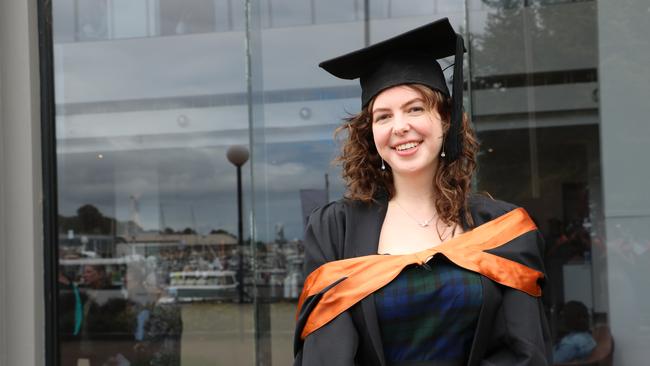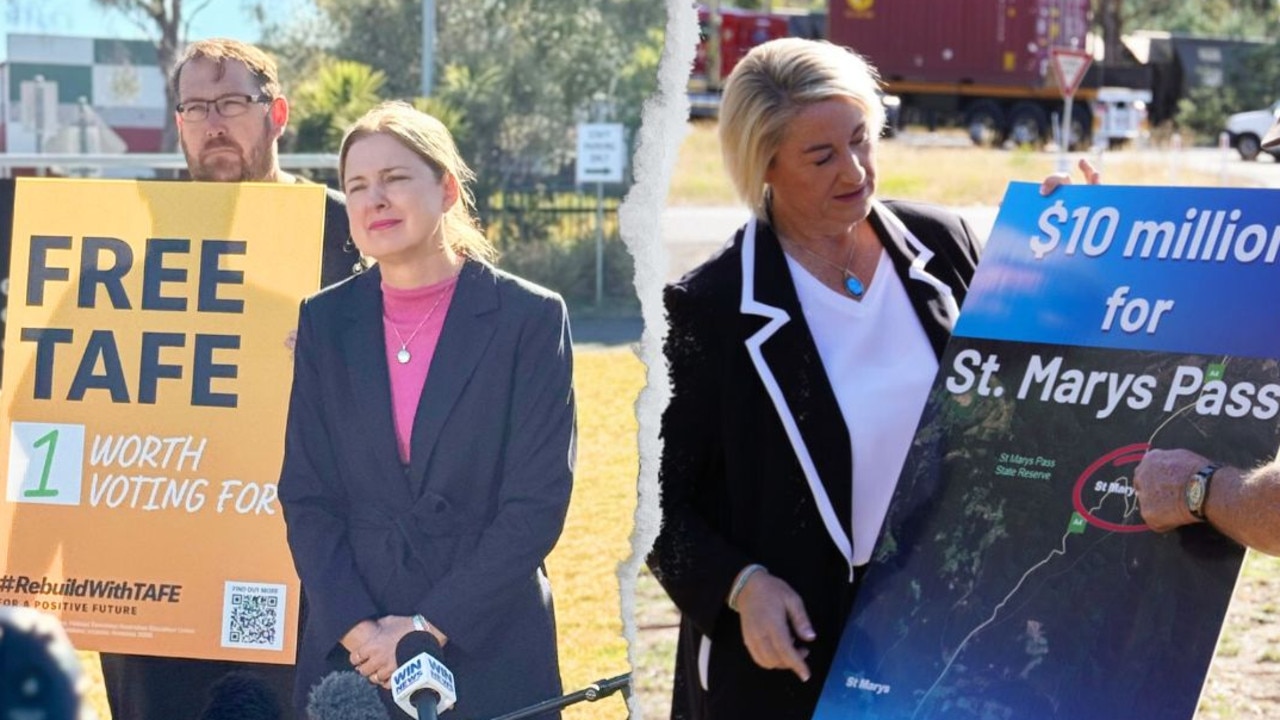Agricultural science grads in high demand
With more jobs available in the agricultural sciences sector than graduates, students have been able to take their pick when it comes to accepting a role.

News
Don't miss out on the headlines from News. Followed categories will be added to My News.
LILIA Jenkins was spoiled for choice when it came to accepting her first full-time role after university.
Ms Jenkins, from Launceston, graduated from the University of Tasmania with a degree in agricultural science on Friday, making her one of the most sought-after graduates in the state.
With more jobs available in the agricultural sciences sector than graduates, students have been able to take their pick when it comes to accepting a role.
“I was offered positions both in private and public sectors, and I know a lot of my fellow graduates are jumping right into the industry into manager positions,” Ms Jenkins said.
“Agriculture is such a broad subject and there’s no doubt that other students would find something that would spark their interest, like how I found a passion in entomology.”
With six jobs available for every agricultural science graduate in Australia, employers are seeking students with industry experience.

Ms Jenkins, who has accepted a position with Cesar Australia as a graduate extension scientist, examined the role of beneficial insects in controlling pest populations and conducted trials in Tasmanian apple orchards as part of her honours project.
“There is a huge demand for skilled agriculture graduates across a range of areas, and employers are looking to bring-in graduates that have both practical skills and scientific knowledge,” she said.
Tasmanian Institute of Agriculture Director Professor Michael Rose said the university worked closely with industry and government to equip the future generation of agricultural leaders and innovators with hands-on experience at farms and laboratories.
“Young people have a real reason to be excited about the enormous potential and rewards of a career in agriculture. Our students have an opportunity to address some of the world’s biggest challenges and opportunities using science, technology and business skills,” Professor Rose said.




